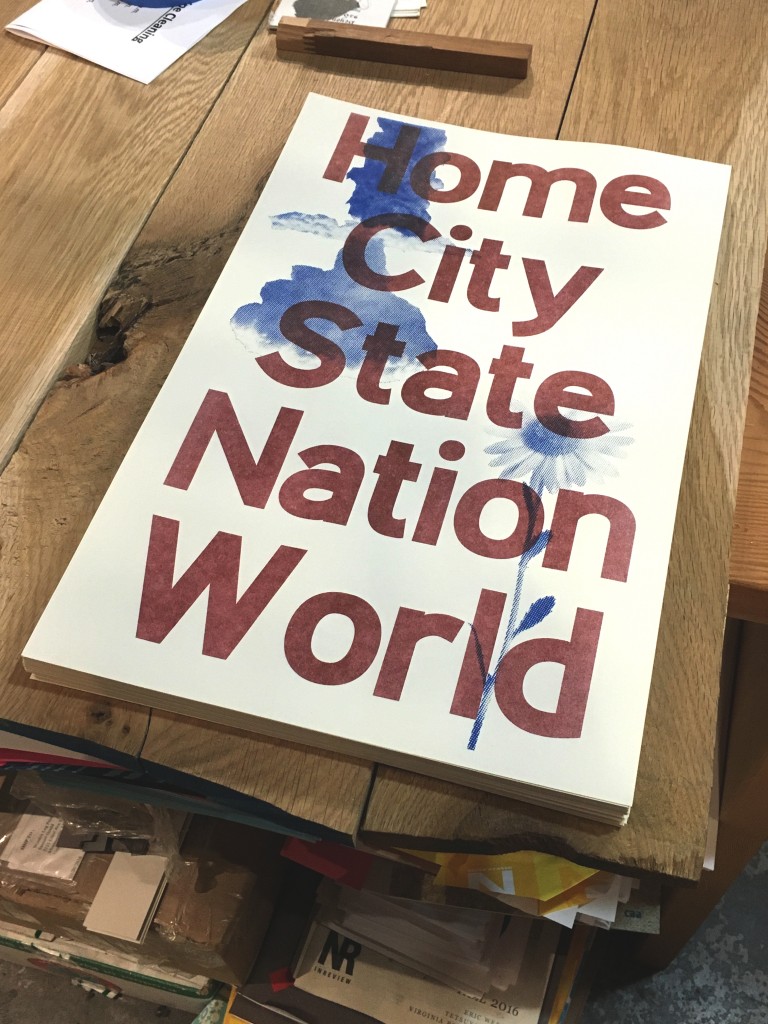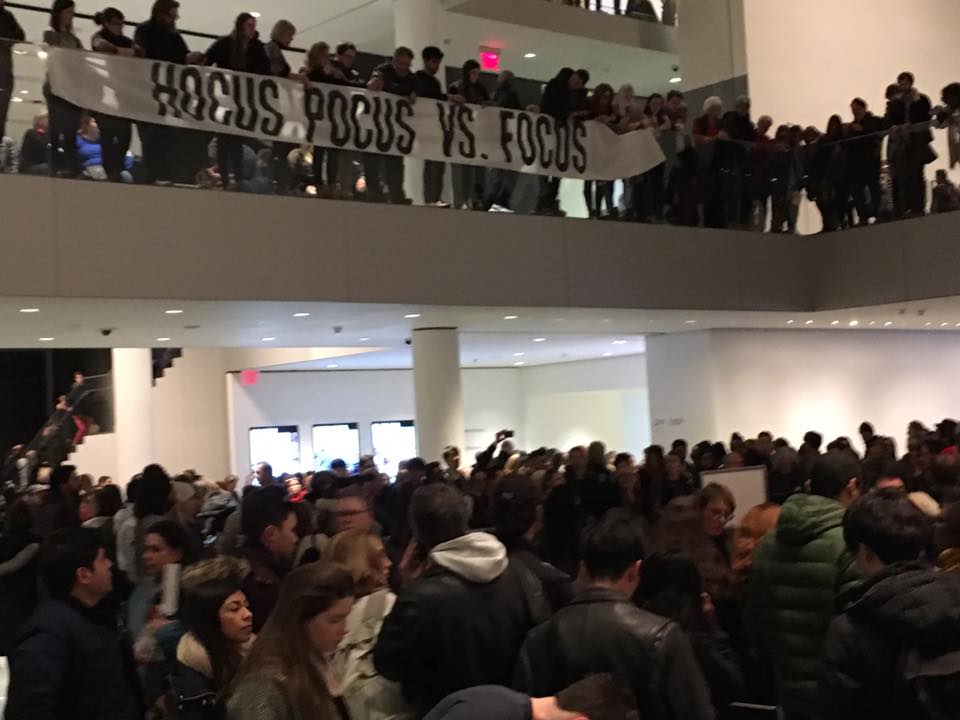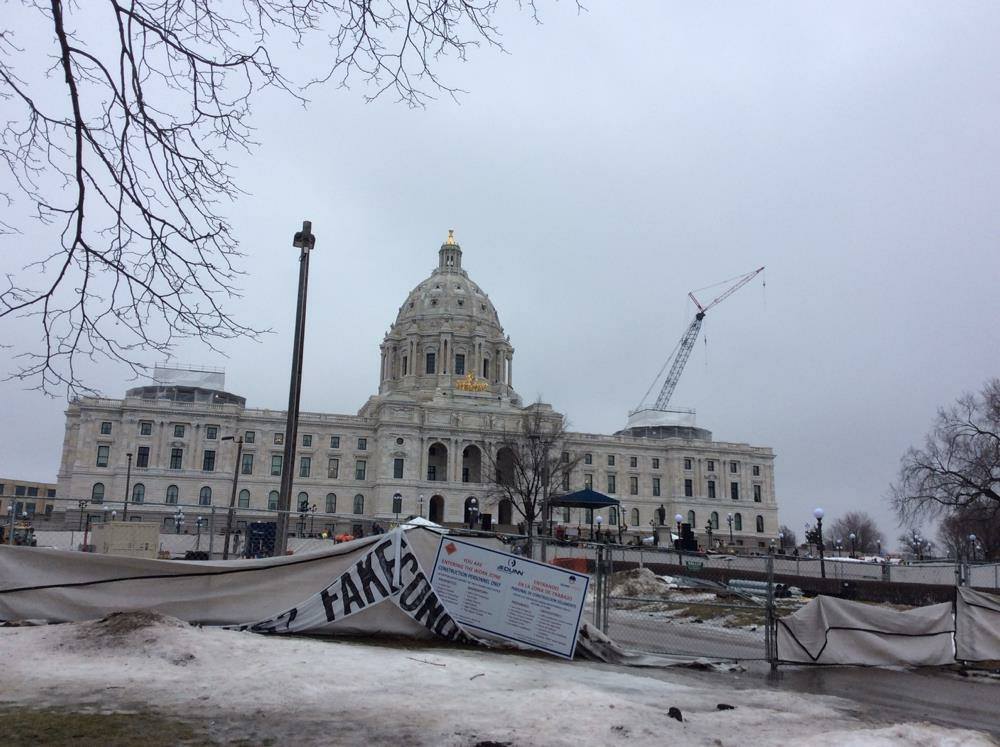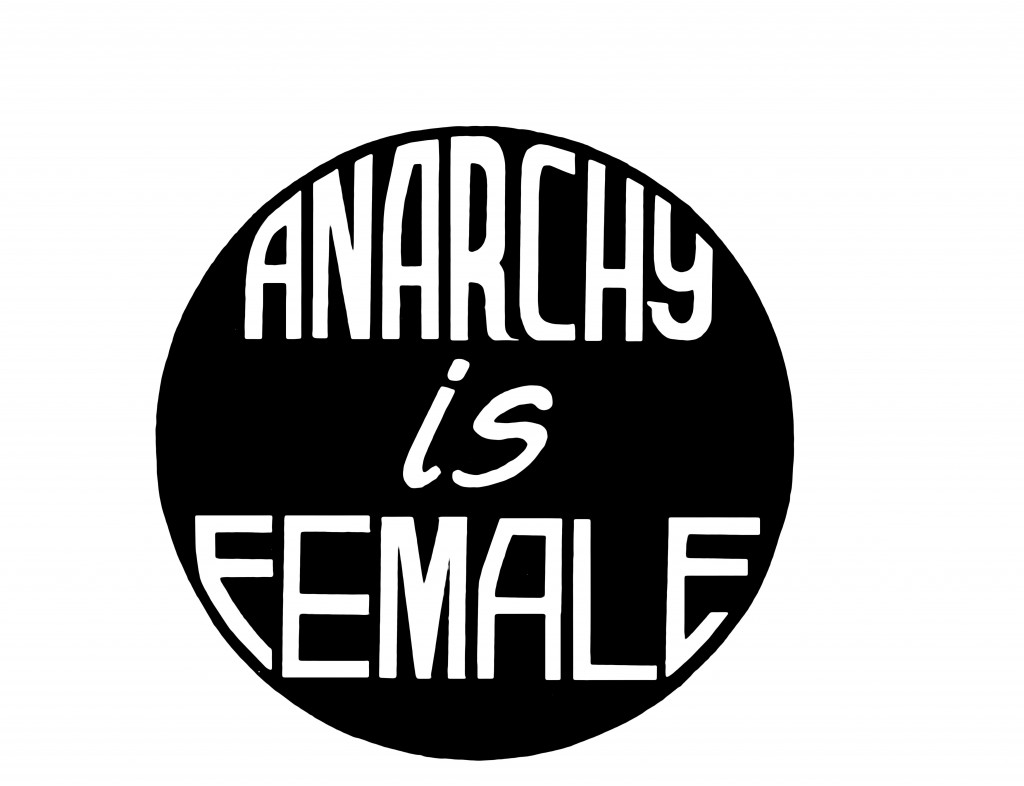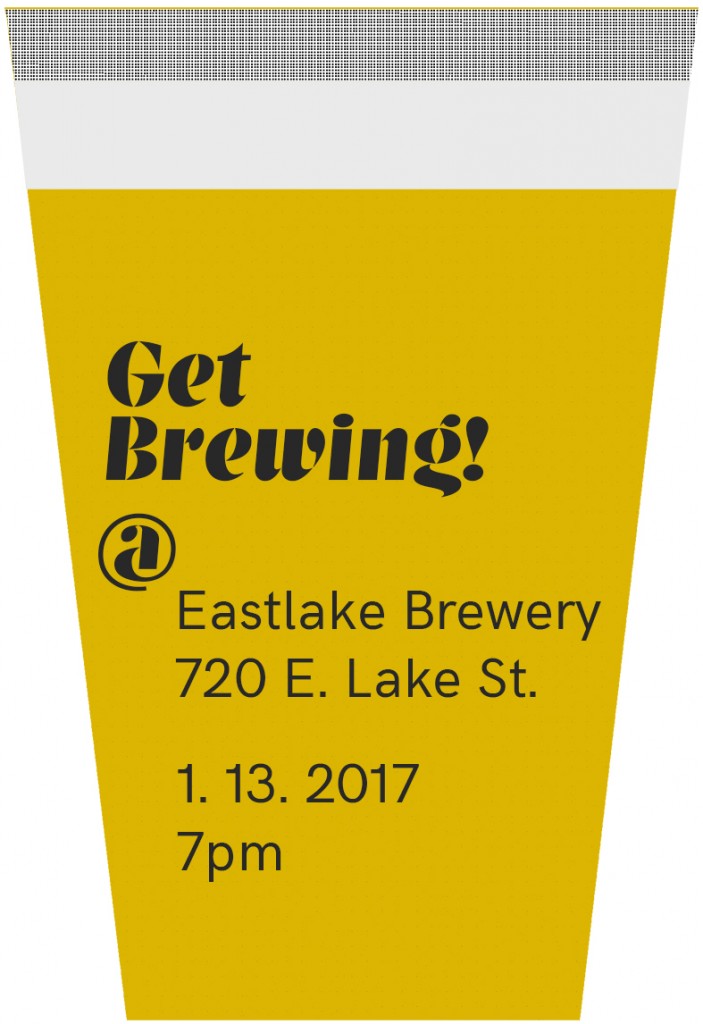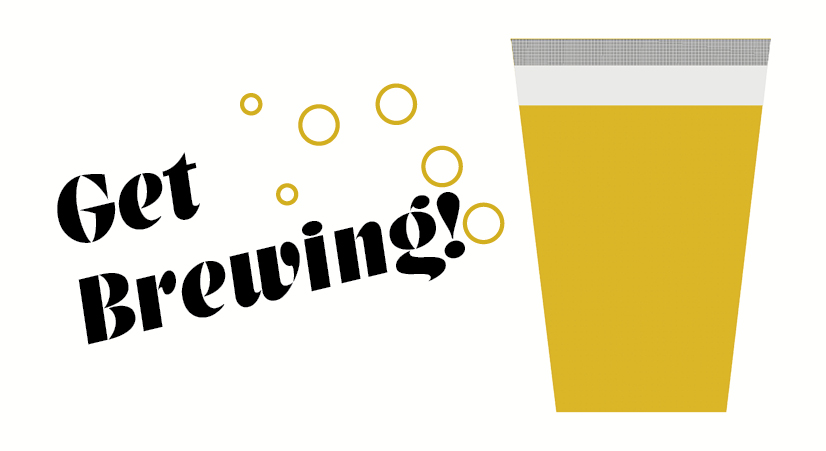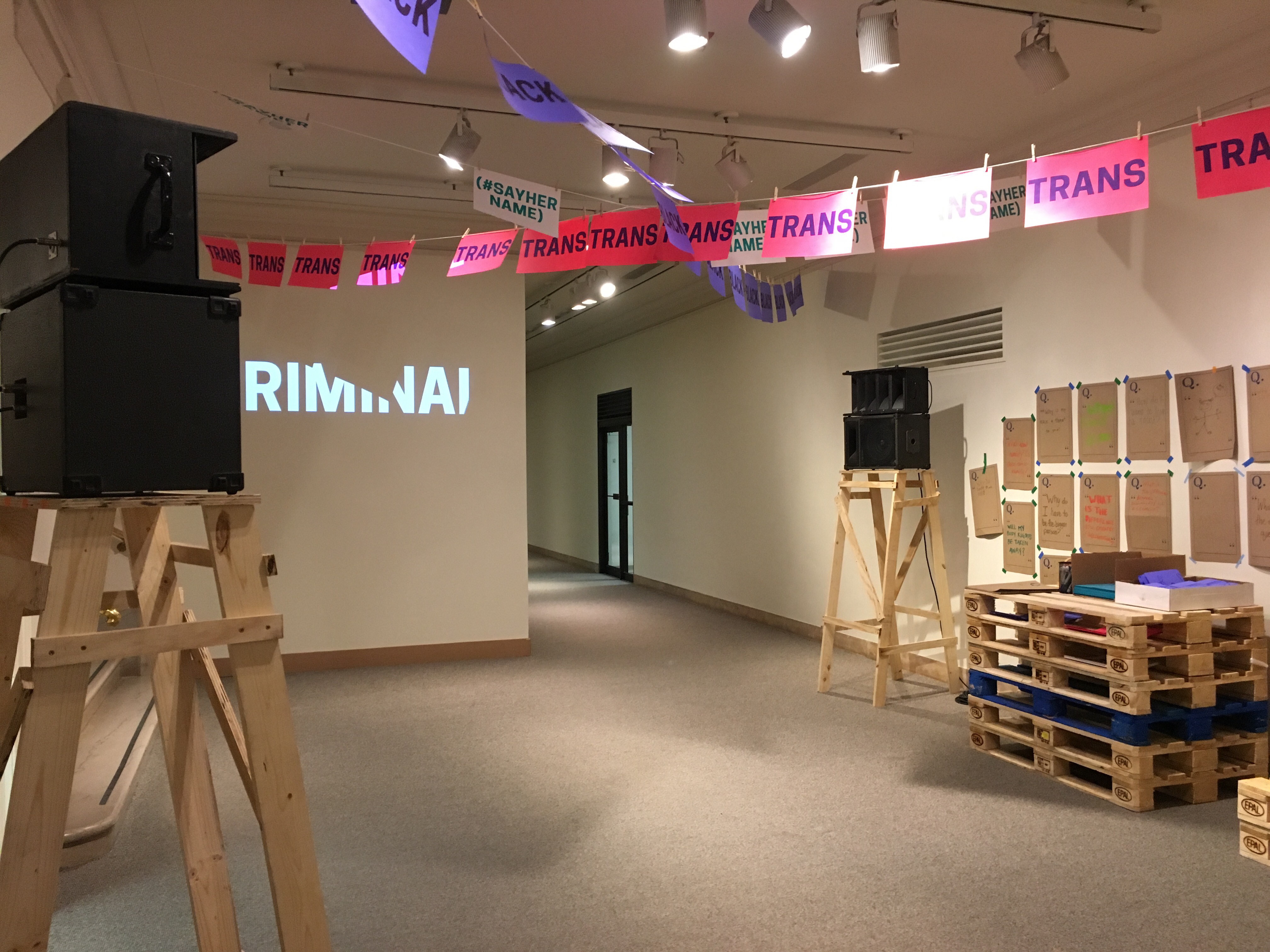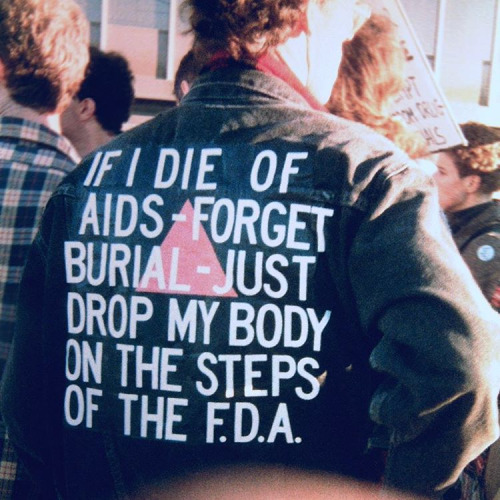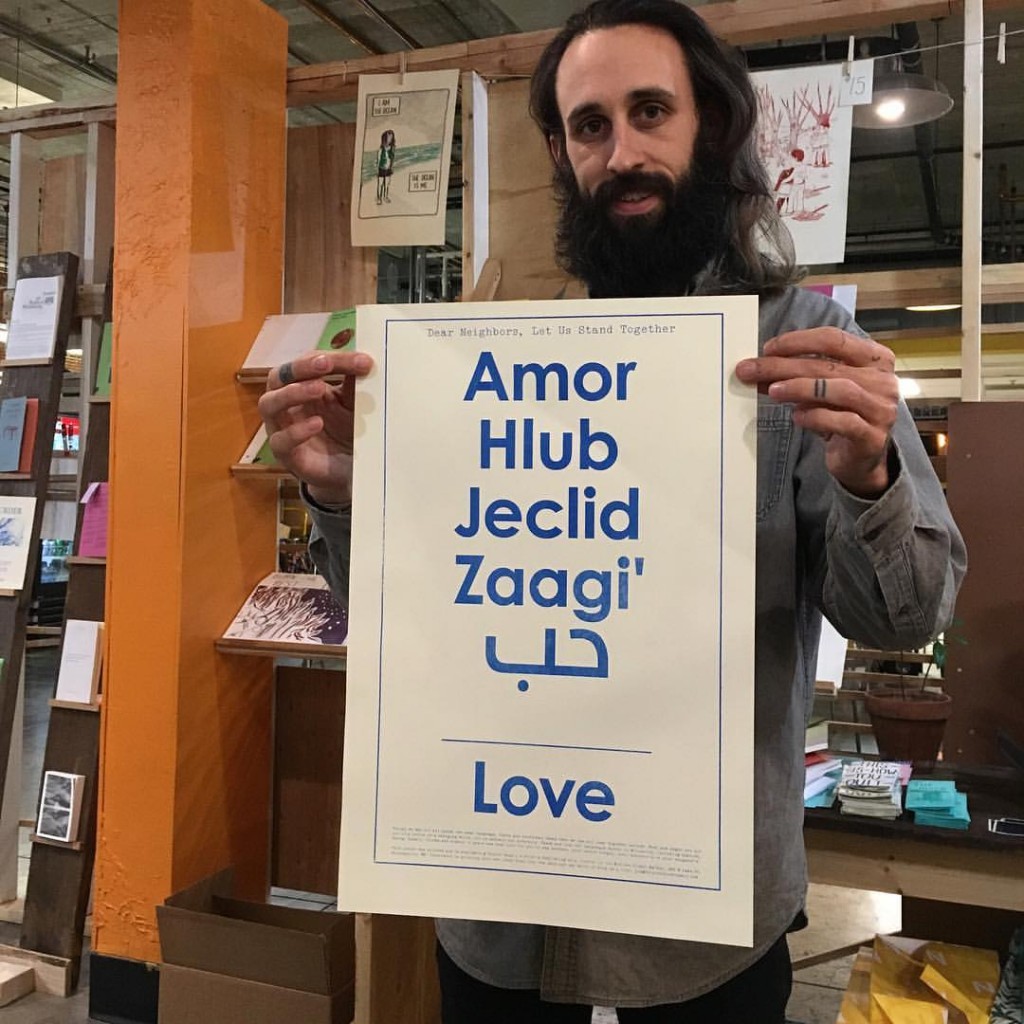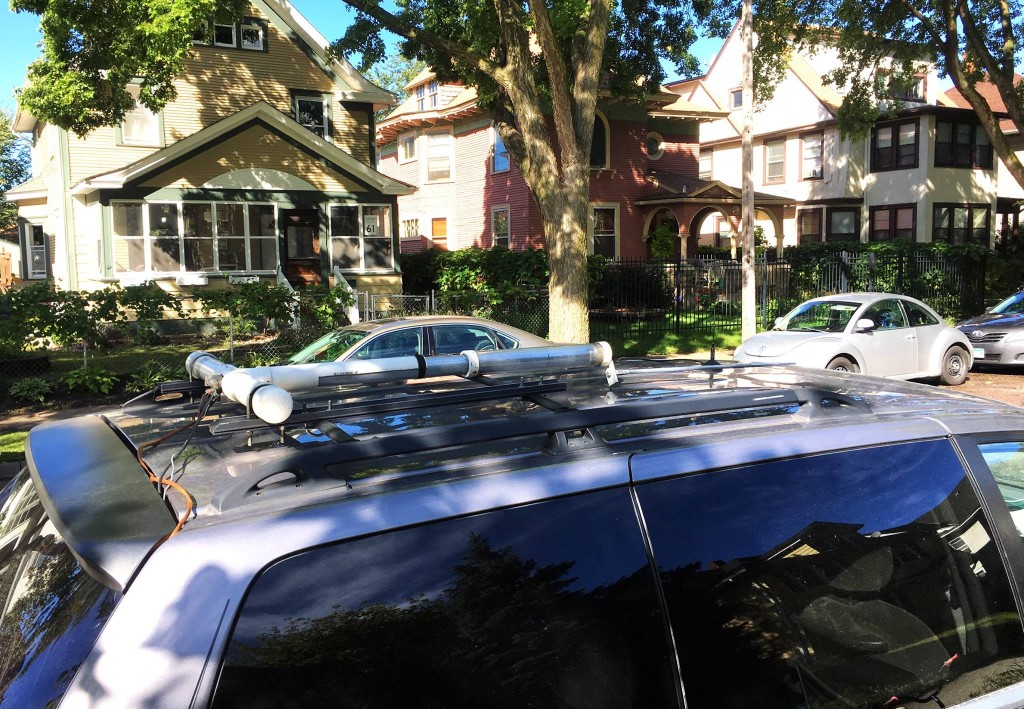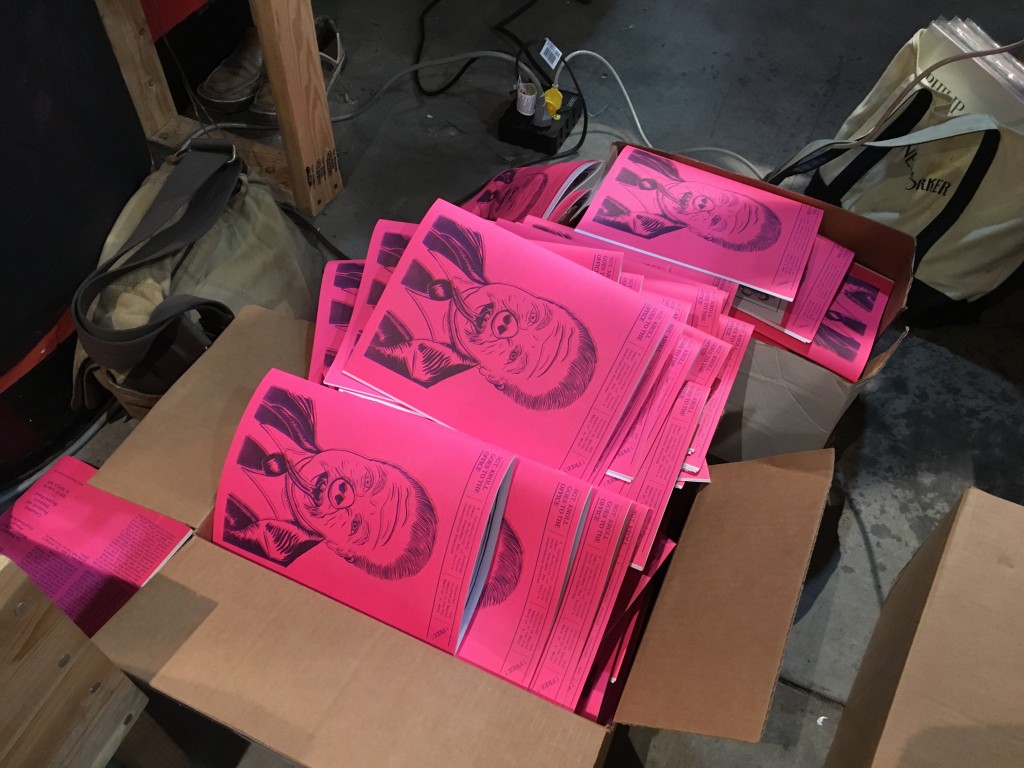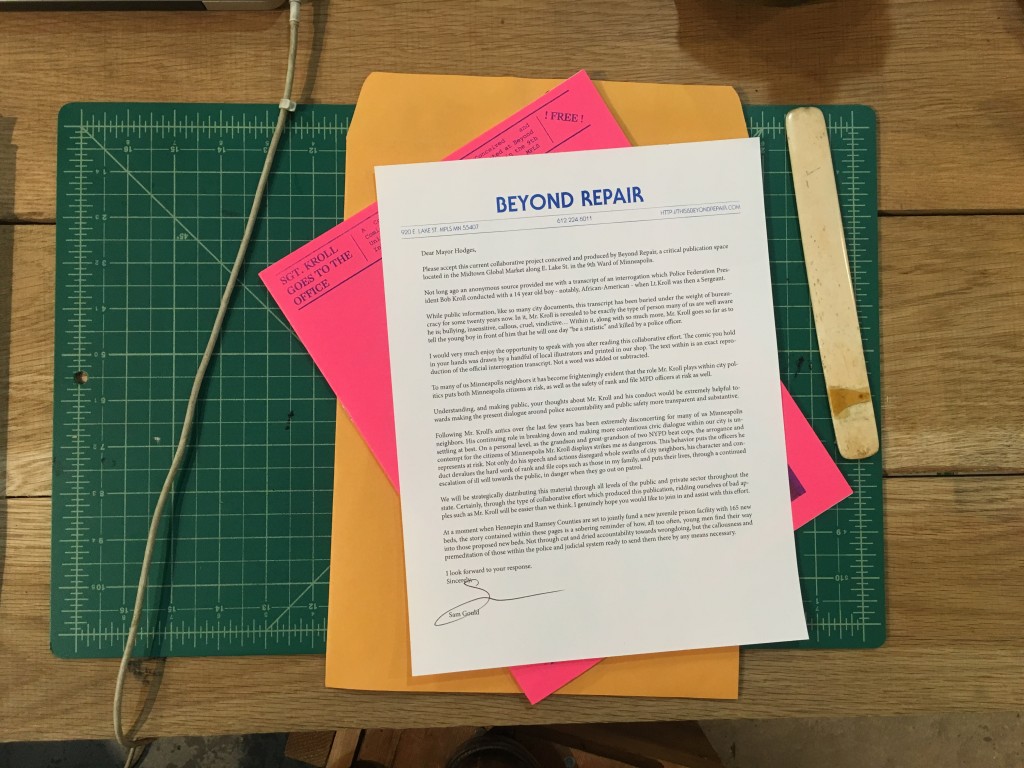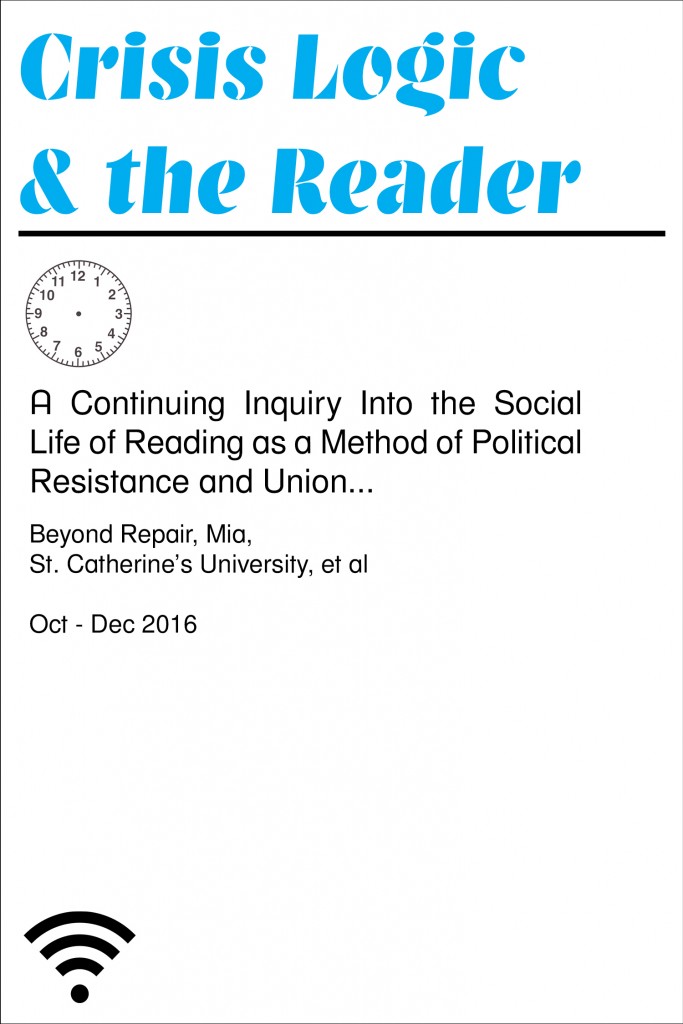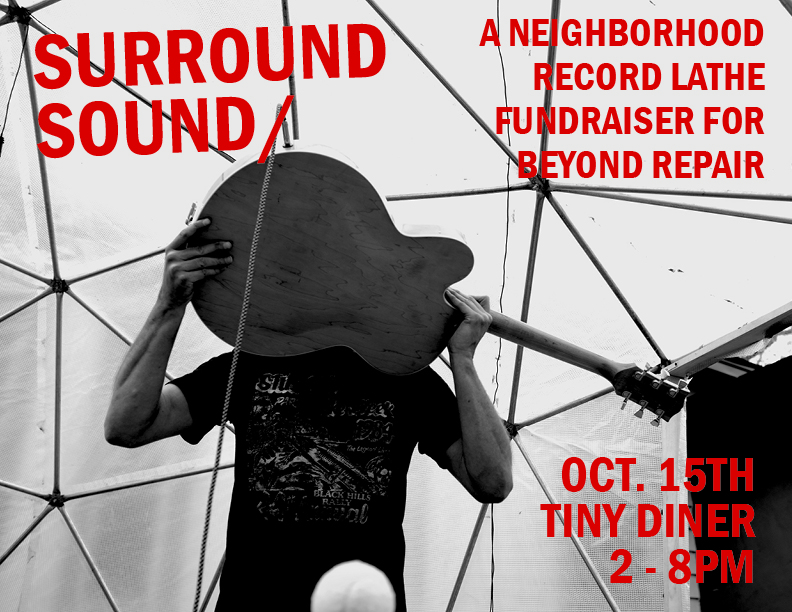Crisis brings out the best in us. Unlike personal hardship, crisis, as we’ll be speaking about through Crisis Logic & the Reader, is collective. We may not all agree on goals, or tactics, but we are all in it, living a complex association of subjective realities experienced, within crisis, more on the surface than we normally allow for. The social disruption experienced within crisis is raw, vulnerable, and most importantly, it is highly malleable. It is shaped by our engagement and our proximity to one another.
A hurricane, a terrorist attack, a public response to great injustice; in crisis we engage our most elemental – arguably most human – social reflexes. We gather together. We look out for one another. Crisis disrupts agreed upon notions of the normal or acceptable rhythms of our day in favor, at its base, of survival. At its best – as when we find one another living within “revolutionary time” – crisis is a mechanism which, through shared effort, helps foster the desire for social evolution towards the creation of a new world.
In crisis we find agency. We take it upon ourselves to do without being asked. We understand that there may be unknown consequences for “acting out,” and yet we nonetheless take that risk for the possibility of greater good. We look, we listen, we assist. Crisis allows us, through careful reading of the social landscape, to recognize our shared resources. An abundance that is so often clouded at times outside of the disruptive energies of crisis logic when we reside within the social norms pre-crisis which produce, and are emboldened by, the isolation of stark individualism. Within crisis we look towards what needs to be done. And so, in the midst of social disruption we are cooperative and collective. We are greater than the sum of our parts.
Crisis follows us. Not as a specter, but as a lens. A method of engaging and seeing the world around us. In each and every interaction – especially those that are trenchantly attempting to “remain whole” – we find ourselves negotiating our proximity to old ways, attempting to unsettle them. We consider ways to disturb, to upset the rhythm of the moment, as a means towards expanding the landscape of the social evolution which we find ourselves so urgently a part of. In crisis our social landscape expands. Often new vistas come into view. We arrive at these new locals and sightlines through the forging of new relationships.
Here in the Twin Cities, for instance, many of us cannot hold our tongues any longer after the murders of Jamar Clark and Philando Castile, two tragic chapters within a prolonged, though energetically erratic, moment of crisis. For many, these tragedies opened further avenues of consideration; staggering economic disparities between white and black Minneapolis residents, or the propensity for the dominant culture within Minnesota at large to avoid conflict, and in turn, critical self-assessment, to name just two. And yet, crisis has raised these issues and many more to the forefront of a shared dialogue. Individuals, knowing they are part of something larger than themselves, find common cause and safety in speaking out. The logic of crisis allows them to recognize their voice as one integral speaker within a system of amplification while, paradoxically, encouraging vibrant autonomy through the agency that crisis provides.
And yet, with all the good which manifests through crisis’ disruption of the day-to-day, the pressure of the moment leads to anxiety. Adrenaline can sustain us for only so long. Sure enough, we falter. We crash. And the momentum that felt like an inevitability begins to lose steam and the friction of the moment begins to wear us down. Rather than erode social structures to reveal new possibilities in living with one another, this friction breaks bonds, encourages competition, suggests that hierarchy – a social structure which was temporarily thrown out the window – is the best option for stability.
Despite all its benefits, crisis is nonetheless myopic. It exists vibrantly within the moment, rarely allowing us time or guidance towards imagining a sustained future for the egalitarianism and cooperation that energizes us into action and common cause.
And so, crisis is exactly that; a moment in time. Limited in duration in that it is “other” than our day-to-day. Not the life we strive for, but a simulation of living differently that, without the tools to do so, we cannot imaginably sustain.
With these limitations in mind it’s imperative that we look for the good in crisis, while not succumbing to its limitations, or imagining it as “real life.” Crisis is pedagogy. What we do with crisis is living. If we are to work together for a common good, we cannot rely on the culture of response that crisis requires to manifest itself. We will need a social tool more fluid, rich in depth and texture. A tool that allows us to live energetically in the present, while understanding, and encountering, the “long now” of the social landscape and its histories. Quite arguably we have an alternative available within the social life of the book.
The culture, consciousness, and material and ephemeral social infrastructure which bibliophiles inhabit presents a compelling alternative to crisis logic for us when considering more sustainable forms of sociopolitical engagement. For book freaks – and perpetual students everywhere – the social landscape that books and texts inhabit is broad. Most objectively it manifests in the material form as a book, but just as much the social life of reading requires no object to allow it to manifest. The reader is receptor and projector, processor and creator.
Known knowns, known unknowns, unknown unknowns; to readers, texts read and unread surround us, making us constantly aware of the networks we inhabit and the varying nodes which connect us. Other readers, books, bookshops, the space “in-between readers” are simply a few of the nodes of consciousness inhabited by the reader. Readers reside within a space and time very much in the present, but constantly informed by what came before and the possibilities of what may materialize after. Deep reading and continued critical “scanning” allows for us to enter social situations, both calm as well as urgent, with a wealth of possible outcomes and associations at our fingertips. The available social landscape materializes before us through an individual storehouse of past reading endeavors that nevertheless exist exclusively in immaterial proximity with other readers and their networks. Books we’ve encountered, pamphlets and newspapers we’ve scanned, act as a prismatic lens to view the world in front of us. Memory and reading comprehension are batteries powering limitless futures. This lens allows for myriad possible avenues of engagement. When considering the social life of reading as an alternative to crisis logic a number of similarities begin to materialize. And, further still, more tools with greater resiliency begin to take form.
You simply cannot read alone. This first point is vital. So, when considering the social life of reading as an alternative to crisis logic and its benefits, it is our job to understand what we mean when we refer to this “social life.” It is not simply a book, or the text within a book. It is not the bookstore, the library, or the stack of books on your bedside table. It is all these things and none of them. It is the spectral embodiment of all readers and texts past, present, and future. It is Montaigne writing in his tower library surrounded by the books he inherited from La Boétie. It is George Washington reading Thomas Paine’s Crisis Letters to his troops. It is the love letter in your pocket, the traffic ticket on your windshield. It is the conversation with the clerk at the book shop or with your friend on a long walk around town. It is the book you see someone reading on the bus. It is the space in-between persons and our ability to understand and complicate one another. It is the public that begins to recognize itself within the empty spaces between readers and their networks.
None of this would be possible without a reading / writing public and its histories. First of all, you would be the only one reading / writing, and the texts you would draft, without our enate dependence on metaphor and analogy to form meaning, would be impenetrable. That is, if you were able to draft them at all. It is only within our associations and their reconstruction that we are able to create meaning. We are constantly reconfiguring old ideas to understand present circumstances. Within the social life of reading, like crisis, our associations are made manifest through engagement. But in engaging crisis we respond, primarily, outwardly. Within the social life of reading a cyclical relationship occurs wherein we are constantly figuring and reconfiguring ourselves based on our experiences.
In Crisis we come together out of commonness, and through our association we become something else entirely. Our disparate experiences interlock through common histories and analogies, but become something altogether different due to their present entanglements. In crisis these entanglements and associations are always in response to an event outside of ourselves. The response is durational and finite. It is often limited to geography as well. Its only form of mobility the persons it most immediately involves. Reading is different. While their energies and qualities may vary over time, our associations and entanglements within the social landscape of reading last a lifetime and are vast. There is always the “known unknown” that others are out there. The mystery compels to search to keep reading and scanning the landscape for clues to that known unknown. The more we read the more readers and sites of reading we encounter, the more the landscape reveals itself to us, a deeply para-subjective and anthropological form of cartography. But unlike antiquated maps this one is lived, exists in a 1:1 ratio, and expands through time and exposure to the particularities of the landscape.
The event of reading is the event which we call living. It is not a moment, but moments and our relationship to them. While crisis takes us out of our day to begin to inhabit a new world, it is only temporary. Social triage in a moment of conflict to cauterize wounds. It does leave us with tastes of other possible worlds and ways of being, but no vehicles remain to travel away and beyond where we are at. We are left with our memories, but no past or future tools to reconfigure for use outside of crisis. With reading on the other hand, social support, transport, and infrastructure abound. Reading both informs and disrupts the norms of our present associations. We are constantly on the move. A machine for the construction of analogies, set to process and adapt to our proximity to others, reading is a method of constant readjustment and, necessarily, self-assessment. A reader who doesn’t energetically engage in methods of self-critique is hamstrung, their available wealth of knowledge limited to what they will accept as true.
And so where do we find ourselves now? Arguably, to engage our present moment within the space of crisis logic, we will in time circle back to old habits. The same habits which allowed us to arrive right where we currently find ourselves; surrounded by racists, hate mongers, climate change deniers, corporate sociopaths, misogynists, and a growing public that simply wants things to “calm down.” We may rally. We may “come together” and compel the present social infrastructure of neo-liberalism to set things straight, but we will, in time, arrive at similar moments. How might we find ourselves, instead of coming together in crisis, reading our shared moment more broadly? What translations or social tools must take hold for us to extend the benefits of crisis logic into a prolonged relational engagement with our social landscape through the available millennia long culture of the book? (Importantly, I’d argue, this culture exists pre-text, beginning with, and extending along side, oral cultures).
One can read frantically. Share books, links, posters, social media posts at a fever pitch. A reader can form a life outside of the book from what inspires them. We can be compelled to act, and within acting, we find ourselves; a whole entanglement of somebodies.
It is our search for fellowship within the social landscape of reading – the energetic understanding and compulsion to engage the positively destructive power of the space between readers and our abilities – that may very well lead us to these other worlds, and quite possibly, to a common good.
